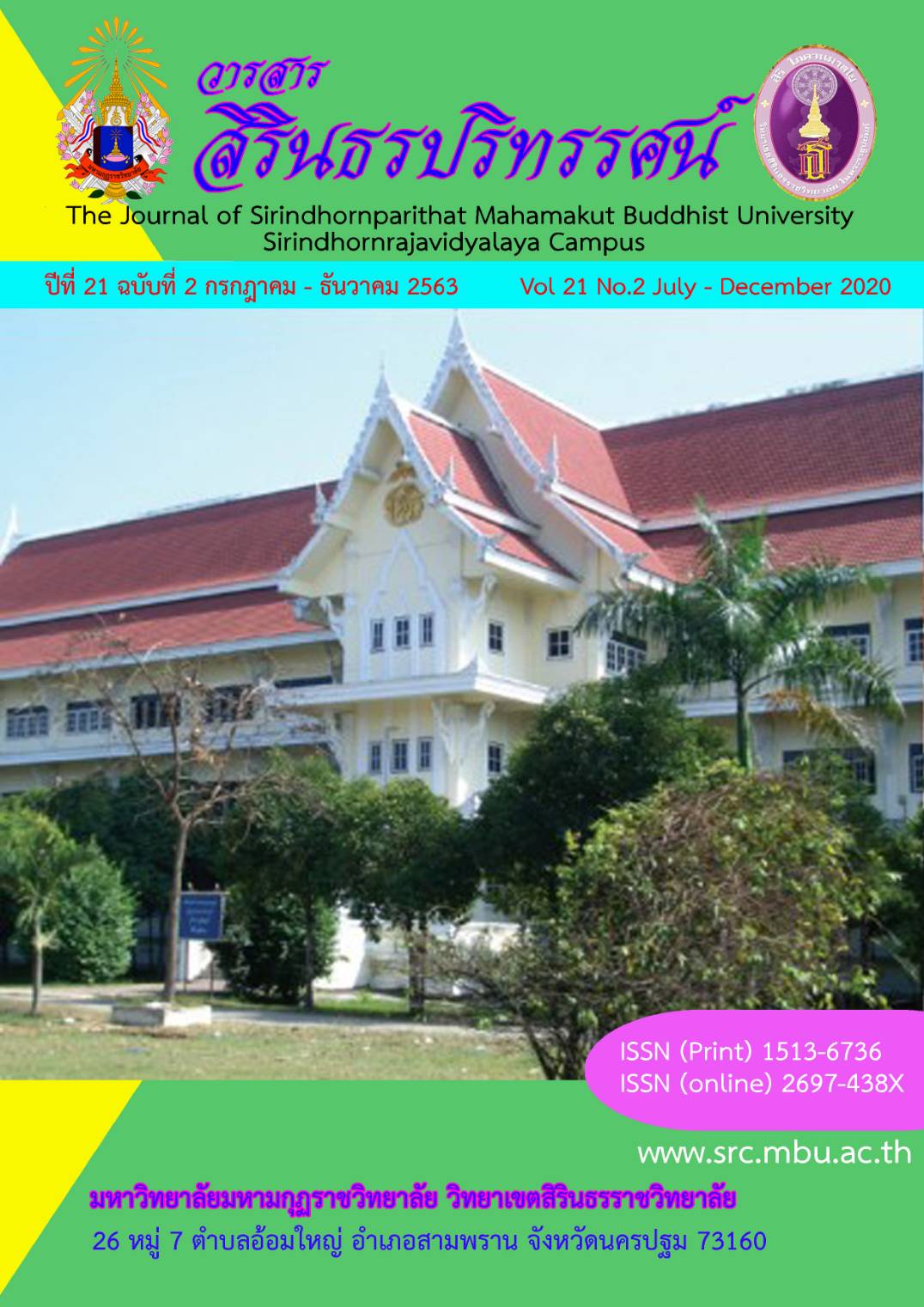The Use of WebQuests Focusing on Local Tourism to Promote English Reading Ability of Eleventh Graders
Keywords:
WebQuests, local tourism, English reading, communicationAbstract
The purposes of this research were: (1) to explore students’ satisfaction towards learning English through WebQuests focusing on local tourism; (2) to compare the pre-test and post-test mean score of student’s English reading ability; and (3) to compare the post-test mean score of students’ English reading ability with the criteria of 60 %. The samples used in this research were 40 students of Mathayomsuksa 5, who studied English reading with focusing on local tourism lessons on WebQuest in the second semester, the academic year 2018 at Nikhom Phimai Suksa School Phimai district, Nakhon Ratchasima Province. The samples were selected by cluster random sampling. The instruments used in data collection were the English reading ability test, lesson plans, and a questionnaire. Statistics used in this study consisted of percentage, mean, standard deviation, and dependent t-test. The results of this research were as follows:
1) The students were satisfied with the use of WebQuest focusing on local tourism to promote English reading ability.
2) The post-test mean score of English reading ability of the students learning English through WebQuest was significantly higher than that of the pre-test mean score at the .01 level.
3) The post-test mean score of English reading ability of students was higher than the criteria of 60%. The study indicated that the students’ English reading ability has been improved after learning through WebQuest.
References
Amstrong, N. (2015). Speed reading: The comprehensive guide to speed reading. New York: Hugh Harper.
Chalaysap, N. (2012). Reading theories/models strategies for EFL learners. Bangkok: Soda Advertising.
Dodge,B.(1997). Some thought about WebQuest. Retrieved from HTTP:// WebQuests.sdsu. edu/about WebQuest,htm.
Guthrie, J.T., Wigfield, A., & Perenevich, K.C. (2004). Motivating reading comprehension concept. Maryland: Maryland University.
Grellet, F. (1981). Developing reading skills: A practical guide to reading comprehension exercises. Cambridge, UK: Cambridge University Press.
Hempestall, K. (2016). Read about scientific evidence for effective teaching of reading. Australia: Centre for Independent Studies.
King, J. (2017). Reimagining the role of technology in education. Washington D.C.: United States Department of Education.
Leite, D.M. (2006). Learning from WebQuest. Nebraska: Department of Teaching and Teacher Education University of Nebraska.
Lems, K., Miller, L.D. & Soro, T.M. (2012). Teaching reading to English language learners: Insight from linguistics. The Electronic Journal for English as a Second Language, 16(1), 1-3.
Lui, F. (2010). A short analysis of the nature of reading. Qingdao, China: Qingdao University of Science and Technology.
McNamara, R.S. (2009). The importance of teaching reading strategies: Perspective on language and literacy spring. San Francisco: The International Dyslexia Association.
Mikulecky, B.S., & Jefferies, L. (2004). More reading power. London: Longman.
Ministry of Education. (2008). The basic education core curriculum B.E 2551. Bangkok: Ministry of Education.
Nuttall, C. (2005). Teaching reading skills in a foreign language. Oxford: Macmillan Education.
Pongajarn, C. (2017). Tourism destination development in Thailand. Retrieved from https://doi.org/10.18174/423967.
Renard, L. (2018). Surprising Ways to use WebQuest in the classroom. Retrieved from bookwidgets.com.
Shelton, C. (2009). Teaching technology: Teaching English using the internet. Retrieved from www.onestopenglish.com.
Spratt, M., Pulverness, A., & Wiliam, M. (2011). The TKT teaching knowledge test course modules 1,2 and 3. Cambridge: Cambridge University Press.
Wutthisinchai, S. & Stopps, P.J. (2011). An analysis of factors affecting the English reading comprehension of Mattayomsuksa 5 Students in Amphur Mueang, Lampang Province. Bangkok: Institute for English Language Education Assumption University.
Young R. (2008). Using technology tools in the public-School classroom. Wisconsin: The University of Wisconsin-Stout Menomonie.
Downloads
Published
Issue
Section
License
บทความที่ได้รับการตีพิมพ์เป็นลิขสิทธิ์ของ มหาวิทยาลัยมหามกุฏราชวิทยาลัย วิทยาเขตสิรินธรราชวิทยาลัย
ข้อความที่ปรากฏในบทความแต่ละเรื่องในวารสารวิชาการเล่มนี้เป็นความคิดเห็นส่วนตัวของผู้เขียนแต่ละท่านไม่เกี่ยวข้องกับหาวิทยาลัยมหามกุฏราชวิทยาลัย วิทยาเขตสิรินธรราชวิทยาลัย และคณาจารย์ท่านอื่นๆในมหาวิทยาลัยฯ แต่อย่างใด ความรับผิดชอบองค์ประกอบทั้งหมดของบทความแต่ละเรื่องเป็นของผู้เขียนแต่ละท่าน หากมีความผิดพลาดใดๆ ผู้เขียนแต่ละท่านจะรับผิดชอบบทความของตนเองแต่ผู้เดียว




